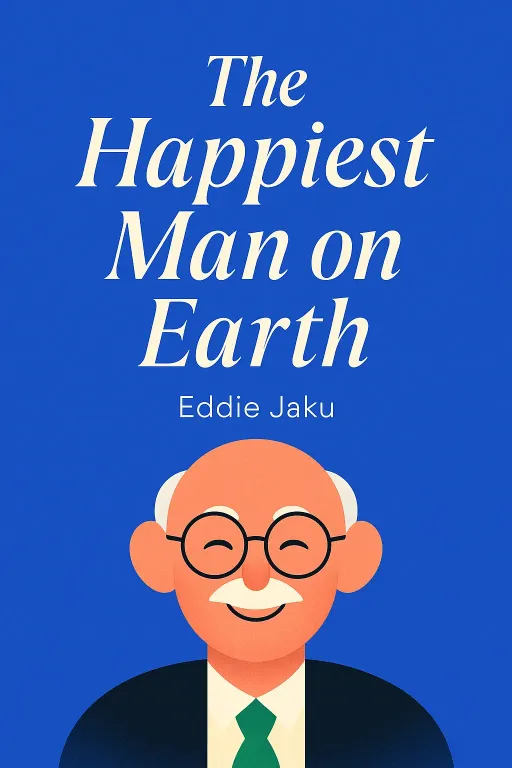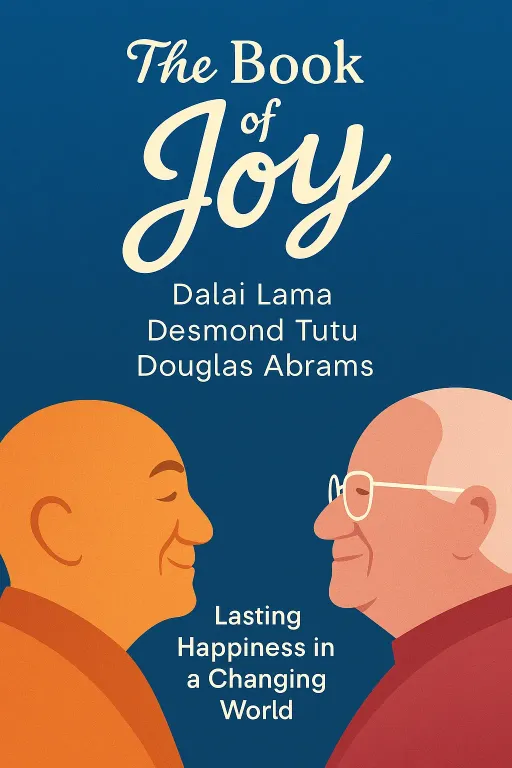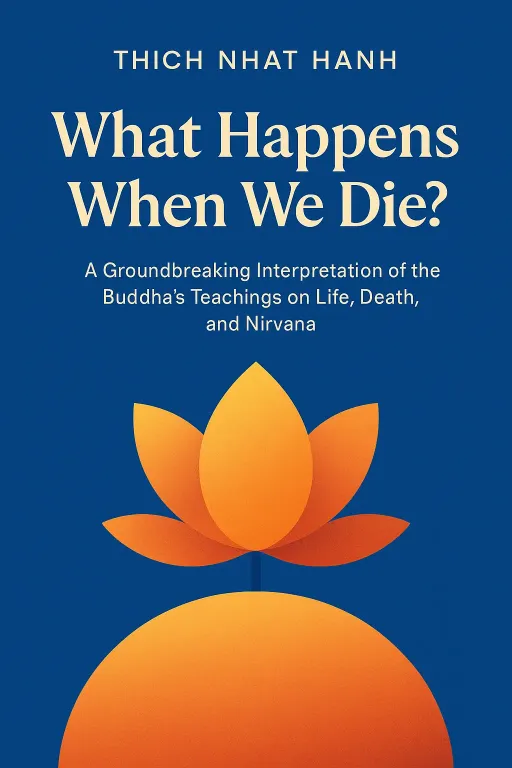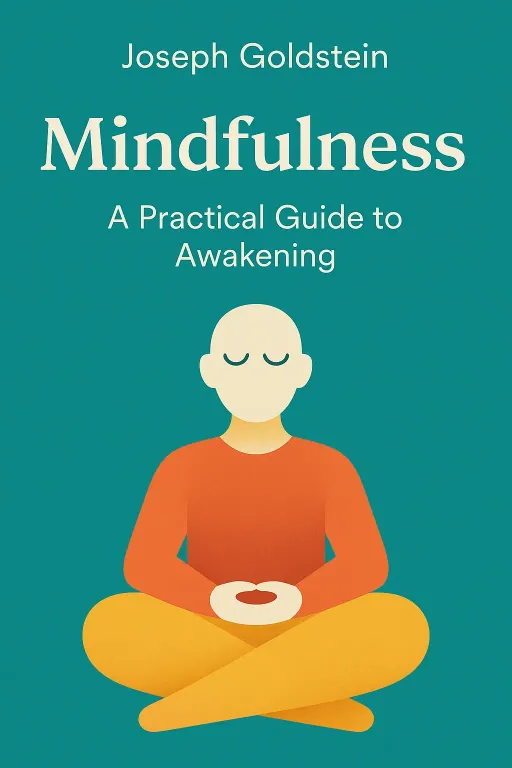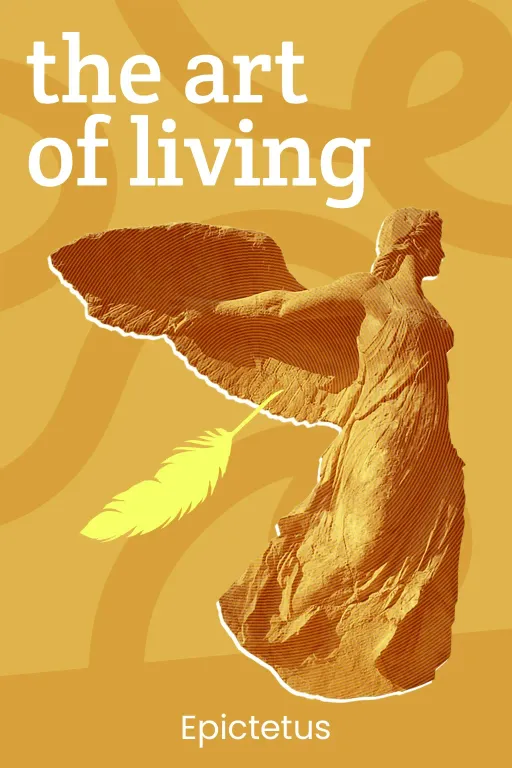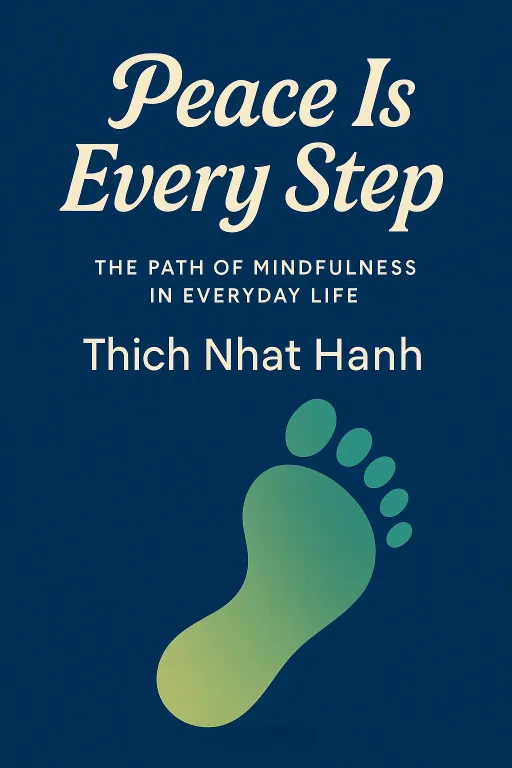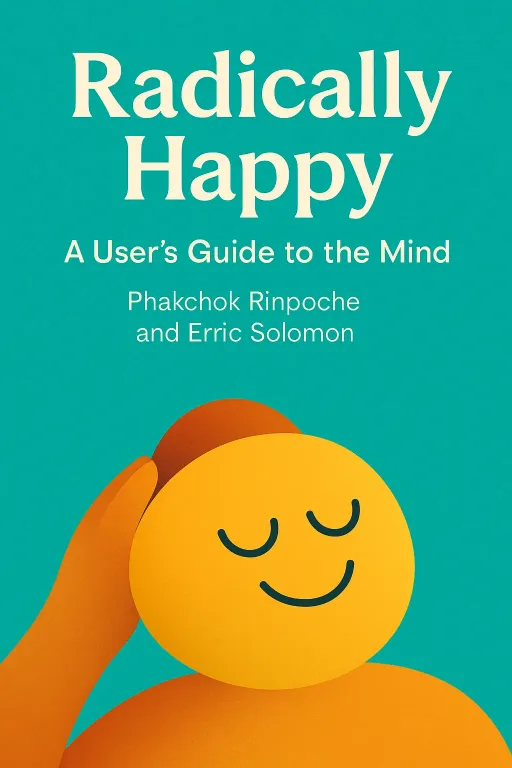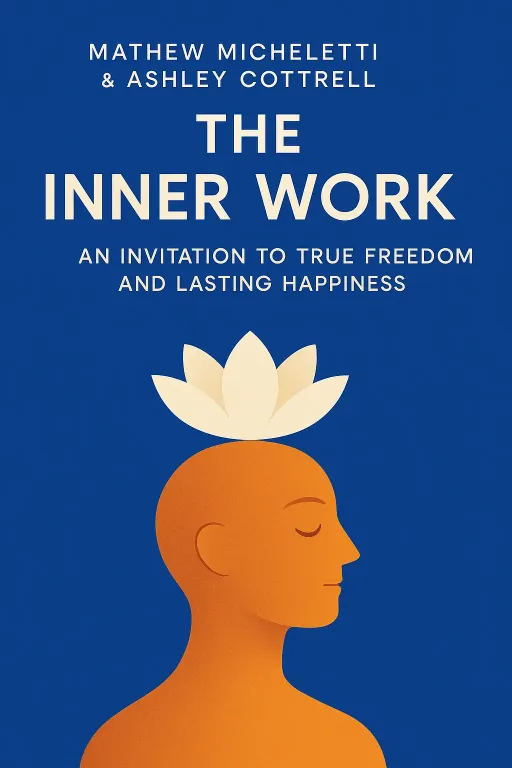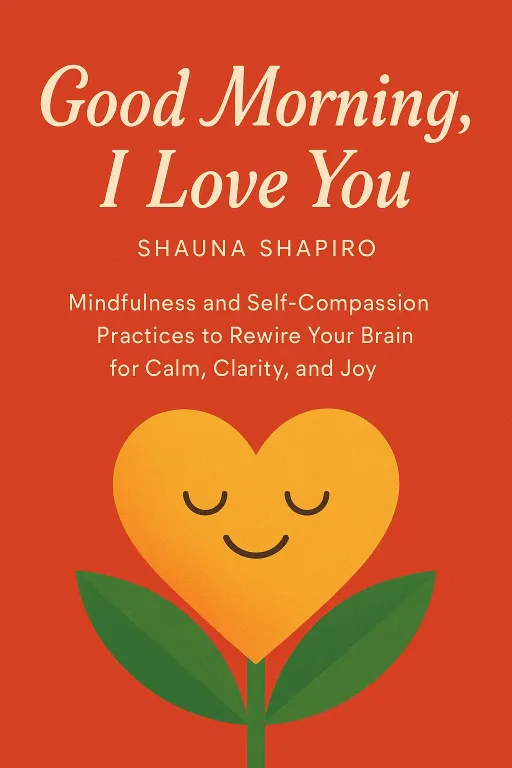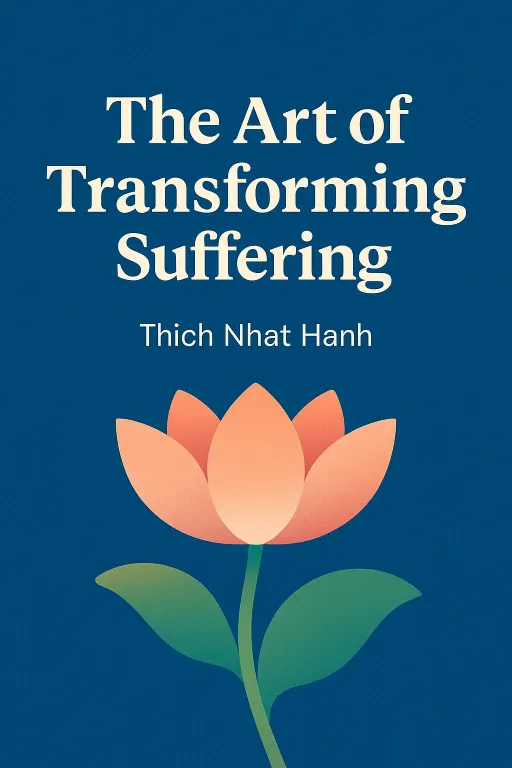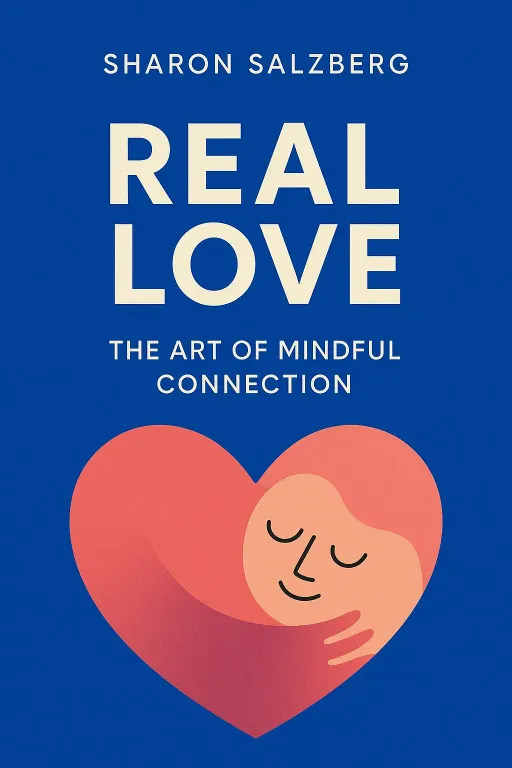
Love Isn't a Feeling, It's a Skill
14 minGolden Hook & Introduction
SECTION
Laura: Okay, Sophia, quick: I say 'Real Love.' You say the first pop-culture cliché that comes to mind. Sophia: Easy. A rom-com montage where someone runs through an airport, probably in the rain, to declare their undying affection. The end. Laura: Exactly. And today, we're talking about a book that argues that's not love at all. It's just... a nice movie scene. It suggests that our entire cultural script for love—the grand gestures, the soulmates, the idea that someone else will complete us—is fundamentally flawed. Sophia: I'm already intrigued. A book that's anti-rom-com? That’s a bold stance in today's world. What is it? Laura: We're diving into Real Love: The Art of Mindful Connection by Sharon Salzberg. And what makes this book so different is who Salzberg is. She isn't a relationship guru or a psychologist; she's one of the key figures who brought Buddhist meditation to the West. She co-founded the renowned Insight Meditation Society back in the 70s and has spent fifty years practicing and teaching this stuff. Sophia: Whoa, okay. So she's coming at love from a completely different angle—not from analyzing relationships, but from the inside out, through mindfulness. That's already a fascinating premise. She's not trying to fix our relationships, but maybe fix how we even think about them in the first place. Laura: Precisely. She argues that love isn't something you find, it's an ability you cultivate. An innate capacity. And for her, this wasn't just a theory; it was a personal breakthrough that happened at a meditation retreat in Burma way back in 1985. Sophia: A meditation retreat in Burma. That definitely sounds more intense than running through an airport.
Redefining Love: From a Feeling to a Skill
SECTION
Laura: Far more. At the time, Salzberg felt completely dependent on others for love. She saw herself as a passive recipient, waiting for someone else to bestow it upon her, to make her feel whole. She was terrified of being incomplete without it. Sophia: I think most people can relate to that feeling. It’s the core of so many songs and stories. The idea that you're a lock and someone else is the key. Laura: Exactly. But during this intensive retreat, she was practicing what's called lovingkindness meditation. It involves repeating phrases of well-wishing, first to yourself, then to others. And after weeks of this, she had this pivotal realization. She describes it as reaching a threshold and seeing that she couldn't flourish as long as she saw herself as the passive recipient of love. But, and this is the quote that changes everything, she realized, "I could certainly flourish as love’s embodiment." Sophia: Okay, 'love's embodiment' sounds beautiful, but also a little abstract. And framing love as a 'skill' you practice… doesn't that feel a bit… unromantic? Almost transactional, like learning to code or balance a checkbook? Where's the magic in that? Laura: That’s the perfect question, because it gets to the heart of her argument. It’s not about being robotic. The 'skill' is about training your attention and intention. It’s about noticing your own thoughts without judgment and actively choosing a more compassionate response. The magic isn't gone; it's just relocated. It's not in finding the 'perfect person,' but in your own capacity to connect. Sophia: I see. So it’s less about a checklist and more about being a certain way in the world. Can you give me a concrete example of how this 'skill' actually works in a real, non-meditation-cushion moment? Laura: Absolutely. There's a fantastic story she tells about herself that makes this so clear. Years later, after she'd been teaching for a while, she was on a lovingkindness retreat. For a whole week, she practiced offering compassion to herself and felt… nothing. No big emotional breakthrough. Sophia: Oh, I know that feeling. When you're trying so hard to be mindful and your brain is just making a grocery list. Laura: Exactly. She felt like it wasn't working. But then she had to leave the retreat suddenly for a friend's emergency. As she was rushing to pack, she dropped a big glass jar in the bathroom, and it shattered everywhere. And her first, instantaneous thought wasn't, "You're so stupid!" or "Now I'm going to be late!" It was, "You are really a klutz… but I love you." Sophia: Wow. Laura: And in that moment, she realized the practice had worked. It wasn't about feeling a certain way during meditation. The skill had rewired her automatic response to a mistake. Instead of self-criticism, her default had become self-compassion. That’s the 'skill' in action. It’s changing your reflexive, internal story. Sophia: That’s incredibly powerful. It’s not about forcing a feeling, but about what bubbles up naturally when things go wrong. The book argues that this self-love isn't narcissistic, right? Because that’s always the fear. Laura: Right. She quotes a psychotherapist who says, "Loving yourself is holding yourself accountable to be the best you can be... Narcissistic love has nothing to do with accountability." Real self-love is the foundation that allows you to genuinely connect with others, because you're not constantly seeking their validation to fill a void. You're already whole. Sophia: That makes so much sense. If you don't see yourself as lovable, how can you ever truly believe it when someone else says they love you? There's a story in the book about a woman named Michelle that perfectly illustrates this. Laura: Yes, Michelle's wake-up call. A dear platonic friend told her he loved her, and she was just… blank. She realized she had never, not once in her life, considered herself lovable. His love couldn't land because there was nowhere for it to go. It’s like trying to pour water into a sealed bottle. Sophia: That’s a heartbreaking and profound realization. It shows that self-love isn't selfish; it's what makes receiving love from others even possible.
The Science of Connection
SECTION
Laura: And that ability to connect, to give and receive love, isn't just an emotional state. This is where the book gets really fascinating. It has tangible, measurable, physical effects on our bodies. Sophia: Okay, now you're speaking my language. It's one thing to feel it emotionally, but does this 'real love' stuff actually do anything to us physically? Are we talking about more than just a warm, fuzzy feeling? Laura: We are talking about a cascade of biochemical changes. The book cites research from neuroscientists like Richard Davidson. In one famous study, he brought women into a lab and gave them mild electric shocks while they were in an MRI machine. Sophia: Sounds like a terrible first date. Laura: (laughing) Definitely. But here's the amazing part. When they were alone, the fear and pain centers of their brains lit up like a Christmas tree. When a stranger from the lab team held their hand, the fear activity went down, even though the pain was the same. But when their husband held their hand, their brain activity calmed down dramatically at every level. Sophia: So holding your husband's hand literally turns down the volume on the brain's fear-and-pain alarm system? Laura: Exactly. And the more connected the woman felt to her husband in her daily life, the greater the calming effect. It’s a direct neurological response to secure connection. But it gets even smaller and more profound. Researcher Barbara Fredrickson talks about what she calls "micro-moments of connection." Sophia: Micro-moments? What are those? Like a text with a heart emoji? Laura: Even smaller. It could be sharing a genuine smile with a stranger, a moment of real eye contact, or a shared laugh with a coworker. Fredrickson's research found that when these moments happen, people's heart rhythms, biochemistries, and even their neural firings start to sync up. Sophia: That is wild. So we're literally getting on the same wavelength with people in these tiny interactions. Laura: We are. And these micro-moments strengthen the vagus nerve, which is a critical part of our nervous system that helps regulate our heart rate and inflammation. So these tiny positive connections are like making little deposits into your physical health bank account. Sophia: That's exactly what happened in that story about Ellen and Gil, isn't it? The couple married for 25 years. When they were first dating, she was telling him this painful story about her parents' divorce, and he just pulled the car over to the side of the road. Laura: Yes. He said he wanted to give her his full attention. He didn't offer advice, he didn't try to fix it. He just listened. He saw her. That act of pulling over was a powerful micro-moment—or maybe a macro-moment—of pure connection. It wasn't dramatic or cinematic, but it was real. And that's the kind of sustainable, grounded love the book is about. It’s not about the airport chase; it's about pulling the car over. Sophia: And it's backed by science. That simple act of presence was probably calming her nervous system in a way she could feel, even if she couldn't name it. It's the opposite of what happens in the story of Samantha's parents in the hospital. Laura: A perfect contrast. Her father, recovering from heart surgery, is embarrassed and alone after an accident in his hospital bed. And her mother, a former nurse, just comes in, and without a word of judgment or disgust, cleans him up and changes the bed. Samantha sees this and realizes that is love. Not flowers or cards, but this difficult, humble act of compassion. Sophia: It's love as a verb. It's doing the hard, unglamorous thing because you care. It’s a choice, not just a feeling.
The Widest Lens: Extending Love to All
SECTION
Laura: Exactly. And once you begin to master that connection with yourself and with those closest to you, Salzberg argues you can take it to the final, most radical level. Sophia: Which is loving everybody. And honestly, Laura, that's where I get off the bus. In today's world, with all the conflict and hate we see, that sounds incredibly naive. How can you possibly love everyone without being a doormat or just completely delusional? Laura: The book tackles that skepticism head-on. It quotes the writer Jason Garner, who says, "We’re called to practice a love that is more courageous than all the terror we see in our world, because if we aren’t bold in our love, then the hate wins out. And there is nothing more stupid than that." It reframes it not as a passive, sentimental feeling, but as a courageous, active stance. Sophia: A courageous stance. I like that framing. But it still feels so abstract. How do you even begin to feel connected to people on the other side of the world, or people you fundamentally disagree with? Laura: Through stories that collapse that distance. The book tells an absolutely unforgettable story about Jacqueline Novogratz, the founder of the social enterprise Acumen. As a young woman, she donated a favorite blue sweater to Goodwill. It had her name tag sewn inside. Sophia: Okay, I think I know this story. It’s incredible. Laura: A decade later, she's jogging in Kigali, Rwanda, and she sees a little boy on the side of the road wearing her sweater. Her name was still on the tag. Sophia: Wow. Just thinking about the odds of that gives me chills. The journey that sweater must have taken. Laura: It's a gut punch, isn't it? Novogratz said that moment became a metaphor for her life's work, showing "how interconnected we are, how our action and our inaction can impact people we might never know and never meet." That sweater makes the abstract idea of global connection feel intensely personal. It reminds you that there's a human being at the end of every supply chain, every donation, every choice we make. Sophia: It really does. It makes you think about the journey of every single thing you own. But that brings up another question. When you start to feel that interconnectedness, how do you do this without getting completely overwhelmed or burnt out? What's the difference between this kind of compassion and just feeling the weight of the world on your shoulders? Laura: That is a critical distinction the book makes, drawing on the work of neuroscientist Tania Singer. She differentiates between empathy and compassion. Empathy is when you feel with someone—you take on their pain, and you suffer too. That can lead directly to burnout. Sophia: Right, you drown with them. Laura: Exactly. But compassion, she says, is different. You don't necessarily feel their pain, but you feel concern, warmth, and a strong motivation to help. It’s an energizing, positive state, not a draining one. The goal isn't to absorb the world's suffering, but to meet it with a courageous and sustainable love. It’s about recognizing your shared humanity without losing yourself in the process.
Synthesis & Takeaways
SECTION
Sophia: So, the journey of this book is really about shifting love from an external thing we chase—the airport rom-com—to an internal muscle we build. It starts with ourselves, with that moment of saying "I love you" to your own klutziness. Laura: Yes, and then it strengthens our closest bonds, not through grand gestures, but through small, present acts of seeing and listening—like pulling the car over. Sophia: And finally, it expands to connect us to everything, reminding us that our blue sweater might end up on a little boy in Rwanda. It’s a profound and practical roadmap. Laura: It really is. It’s about realizing that connection isn't a lottery ticket you might win; it's a daily practice. And the book suggests that even the smallest acts—like truly listening to someone, or offering a kind thought to a stranger, or forgiving yourself for a mistake—are not just nice gestures. They are biologically significant acts of love that rewire our brains and our world. Sophia: That’s such a powerful takeaway. It makes love feel less like a mystery and more like a choice we can make in any given moment. Laura: It leaves you with a really potent question. It makes you wonder: what's one small way you could practice being 'love's embodiment' this week, instead of just waiting to receive it? Sophia: I love that question. It’s not asking for a huge life change, just a small shift in perspective. And we'd genuinely love to hear your thoughts on this. Find us on our socials and share one small moment where you felt that shift. It's a powerful thing to notice. Laura: This is Aibrary, signing off.
